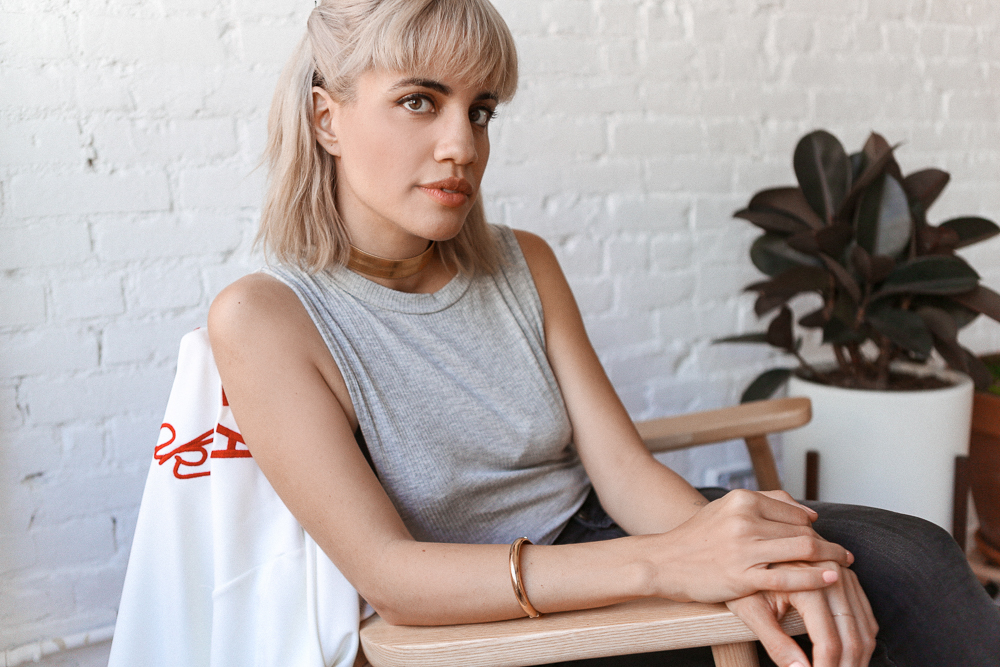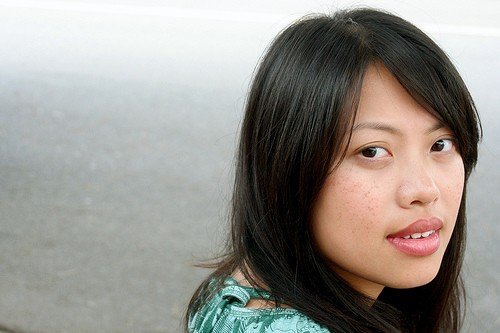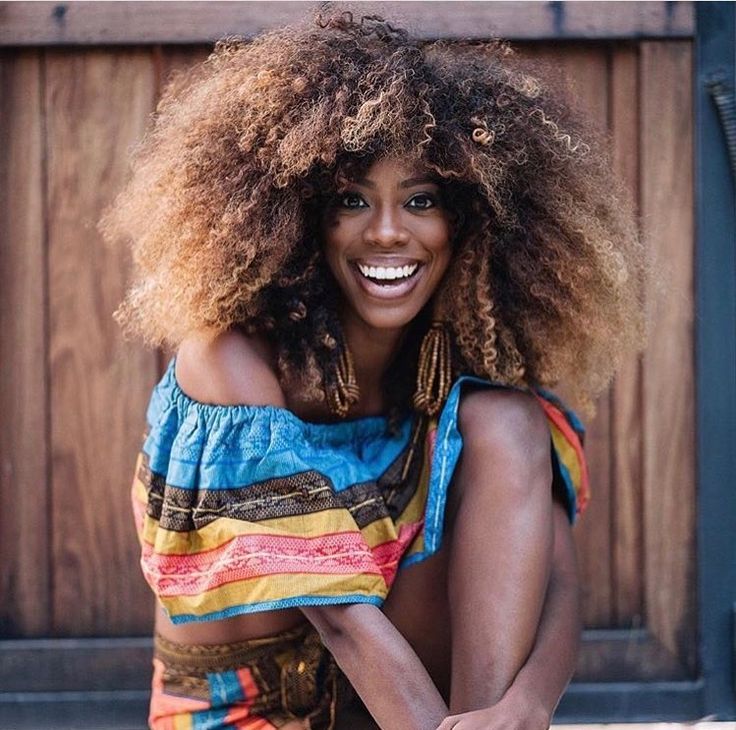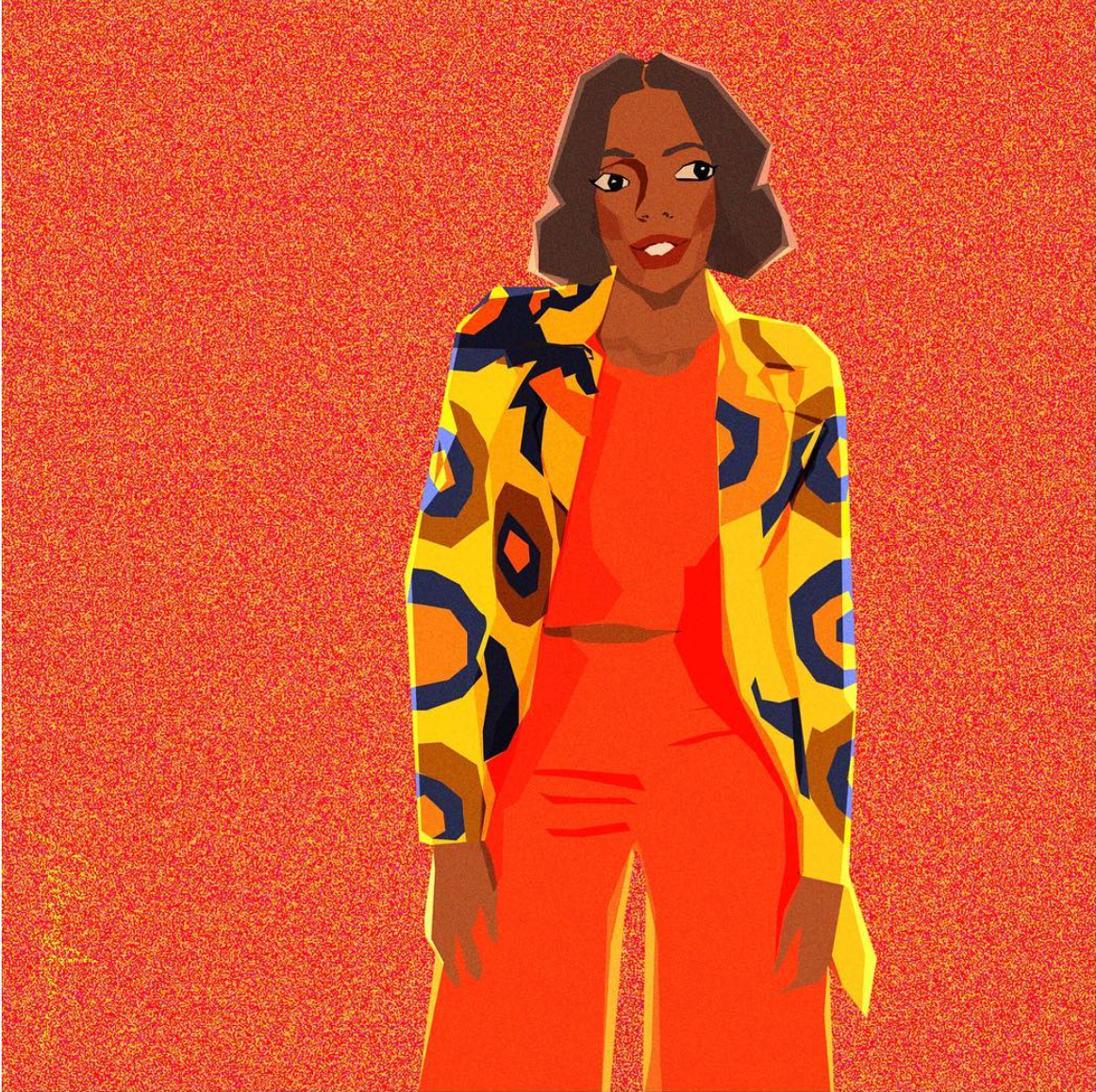Hollywood Roundtable: 4 Actresses Talk Sexism in Tinseltown
Take this sexism.
Given the recent reports of Harvey Weinstein's disgusting behavior, we are re-sharing this conversation, which took place this past July.
What’s it like being a woman in Hollywood? It’s a frustrating (and surely, aggravating) question on many fronts. Well, it’s like any other industry. There are moments of extreme pride and accomplishment. There are moments of doubt. Moments of anger and rage at endless sexism.
But we caught up with Natalie Morales, director, writer, and actress whom you'll see in the upcoming Emma Stone and Steve Carell flick, Battle of the Sexes, June Diane Raphael, actress, comedian, and writer who currently plays Jane Fonda's daughter and the CEO behind Lily Tomlin’s organic lube enterprise in the acclaimed Grace and Frankie, and Kulap Vilaysack, writer, actress, comedian, and the only female show-runner/EP alongside four male EP’s on Bajillion Dollar Propertie$ on Seeso to ask just that.
left to right: June Diane in Grace and Frankie; Natalie Morales for Into the Gloss shot by Tom Newton; and Kulap Vilaysack.
So, what’s it like as a woman in Hollywood?
Natalie Morales: This is a question I get a lot and I’m never sure how to answer because I don’t know what it’s like to be a man in Hollywood. I feel great. I love my industry. I love what I do and I love the people I meet.
June Diane Raphael: I love being a woman. And I love acting and writing and overall creating. Sometimes the combination of those two things can be frustrating, but being a woman is one of my favorite things to be!
Kuala Vilaysack: At the moment, I feel empowered and clear-eyed… Like Moana on the other side of the horizon. Now I know what you are thinking, “Kulap is very cool and accessible for connecting so strongly to an animated film made for children.” Thank you.
“At the moment, I feel empowered and clear-eyed… Like Moana on the other side of the horizon.”
Tweet this.
Do you ever think your job would be easier if you were a man?
Natalie: Definitely, but I think most jobs would be. For starters, I’d get paid more. So that makes it easier off the bat. Secondly, as in most jobs, people would take me more seriously. Especially as a director and writer. I’m sure there are a lot more reasons it’d be easier, but those are the big ones.
June Diane: I’m married to a man and we have very similar struggles (always wanting more out of our careers, always struggling with feeling “less than” as an artist) but I also have particular fears and concerns that (for me) feel specifically female (likability or lack there of, sexuality and too much of it/too little of it, reluctance to self promote) I think in general being a human (if you are awake to the experience) can be very challenging (men need healing for their role as oppressors/maintainers of the patriarchy as much as women need healing as the oppressed — we have both lost our humanity in this struggle). I feel this as a white person who benefits (through no merit of my own) from the white supremacist society we live in. I don’t wish to be in someone else’s shoes, but I wish to dismantle the racist patriarchal society I live in as it both oppresses me and supports me.
Kulap, you’re the only female show-runner/EP alongside four male EP’s on Bajillion Dollar Propertie$ on Seeso, has there been a time when it felt your gender held you back?
Kulap: No, probably because I have the final say on all matters concerning the show. Scott Aukerman, David Jargowsky, Thomas Lennon and R. Ben Garant continue to be incredibly supportive and I’ve benefited greatly from their experience and input. Fortunately, I’ve been afforded the space necessary to come into my own.
Do you have any specific anecdotes of gender bias?
Kulap: When we were interviewing department heads before production of Season 1, the old school men tended to direct their questions to the male seated beside me. I did not appreciate that. With four seasons of the show under my belt, I am glad to be past the craning of necks looking for the man in charge.
Natalie: I have had people tell me to my face, and mean it, that women are not as funny as men. And so they don’t hire women. This is a real thing. I have had people tell me to sit in the back of the 12 passenger van when I’m already in the front seat (I get car sick) because my male peer might like to sit in the front. I am 100% sure I have been paid less than most of my male co-stars for the same or more work. I have been thought of as a silly actress when I present work that I’m trying to direct or write.
"I have had people tell me to my face, and mean it, that women are not as funny as men. And so they don’t hire women."
Tweet this.
June Diane: Before pitching a feature film to a studio, an older male producer hid my index cards around the room while I went to the bathroom. When I returned, he had me play the “hotter colder” game while I walked around trying to find them. He then also requested I take off the blazer I was wearing to see my tank top. I complied.
That all sounds truly awful. Where are the areas where Hollywood can make progress?
Kulap: We need more women in power/hiring positions in all aspects of the business. More men in these positions need to make it a priority to hire more women. Hire women. Recommend women. Advocate for women.
June: Every story shouldn’t have one black friend or one woman to create the illusion of inclusion. Diverse casts can support more than ONE! The same goes for writer’s rooms. We need to look at this idea of “we just want to hire the best people for the job” and ask ourselves what that means. Storytelling, at least in my experience, has been at it’s best with a million different perspectives and viewpoints and life experience.
Natalie: Equal pay, equal hire, be less afraid of women, understand that women-led movies and tv MAKE MONEY, be more intersectional with your support of women, cast out of the “ordinary”, give chances to female filmmakers who are small and starting out, encourage women to tell their own stories.
So on the topic of sexism. Fun! Natalie, Battle of the Sexes is a timely movie. Women are living in the aftermath of demanding equality. What was it like being a part of telling that story?
Natalie: It’s kind of terrible that it’s timely, isn’t it? But it somehow is. It somehow feels like we’ve been fighting for our rights for so long and some people have convinced themselves that we’ve won, but we haven’t. Not by a long shot. Sure, women in America have some things easier than in other countries, but we’re still so behind. It was wonderful to be a part of that story. To show people that weren’t around when this happened (like myself) that this fight is not new, it’s hard, and it’s worth it.
Why do you think it’s important to tell now?
Natalie: I think it will be important to tell for all of time. It’s important now because Billie Jean King accomplished something by fighting back. It gives us courage and tells us someone came before us. We can do it too. It will be important in the future, when hopefully rights are truly equal across the board, to tell the story of why then needed to fight for it.
Why do you think studios are reluctant to put as much money behind female-led movies?
June Diane: The long-standing idea has been that male viewers will not care about female narratives while female viewers will care about male narratives. They fear “female led” movies will have a smaller audience and so they won’t make as much money. Wonder Woman disproves this theory as do the MANY MOVIES LED BY WOMEN THAT HAVE MADE MONEY AT THE BOX OFFICE.
Speaking of rights being truly equal across the board, do you think wage parity will become a reality in Hollywood?
Kulap: I sure hope so.
June Diane: Yes.
Natalie: I am an optimistic person, despite my snarky tone. So I’m going to say yes.
What needs to change to get there?
Kulap: A long road of greenlights to prove that our stories and our leadership have the same value. Better yet, an open highway.
June: I would love the major Hollywood agencies to start a real dialogue about this [wage parity]. I would also love every actor/writer/director to bring up wage parity in every conversation they have about what they are getting paid.
June, you’re about to launch into some positive convo with your book The Badass Woman's Guide to Running for Office and Changing the World, coming out 2019. How are you badass and how do you want to change the world?
I’m badass in that I’m a working mom. The end! But also because I’m committed to working hard to politically engage in my world. I’m calling my reps and showing up as much as I possibly can. I am also doing the internal work (much harder and more painful) to figure out where I can dismantle the racist heteronormative sexist ideology I have accepted unconsciously.
“I’m badass in that I’m a working mom. The end!”
Tweet this.
How do you reconcile the liberal face of Hollywood against the ageism and sexism that exists?
June Diane: I don’t reconcile it! I am working hard to change it.
Natalie Morales: I don’t [either]. I don’t know how. The most I can say is that I don’t work with the sexists. I’m lucky enough to be able to afford not to. I can turn down a role if I don’t like it. I will work hard to give women jobs so that they can turn down roles if they don’t like them too.
Let’s end this end on a positive note. What have you seen in your industry that excites you?
June Diane: I love what Zoe Lister-Jones just did with Bandaid (hiring an all female crew). I’m so used to seeing so many men on sets I find the idea exciting and I would LOVE to work with an all female crew.
Natalie: Opportunity for women, and successful women extending a hand to younger, less experienced women.
Kulap: Social media continues to shine a bright light on gender and racial bias, pushing us forward to be representative of the country as a whole.
It’s been thrilling to see badass girlfriends of mine, wearing hats on top of hats and getting their projects produced. Shout out and shine on June Diane Raphael, Casey Wilson, Danielle Schneider, Andrea Savage, Jessica St. Clair, Lennon Parham, Naomi Scott… this list too goes on and on, but not long enough.
MORE FROM OUR BLOG
Why "Insecure" Star Feels Good as a Black Woman in Hollywood
The future of TV is fierce AF.
R: Yvonne Orji by graphic illustrator Monica Ahanonu
When Insecure actress Yvonne Orji says, "I feel good as a woman in Hollywood. I feel good as a black woman in Hollywood," you can tell she means it. And she doesn't think her job would be easier if she were a man. "No, because I like being a woman. I think there is beauty and benefit to being a woman. I like being able to go into male-dominated spaces and blow people’s minds away."
That’s not to say she is blind to the discrepancy in Hollywood. Race issues. Age issues. Wage issues. There’s no way to avoid them.
"I like being able to go into male-dominated spaces and blow people’s minds away."
Tweet this.
Her journey through Hollywood certainly hasn't been without sexist moments. Having first made a name for herself on the stand-up circuit, Orji says there was always a moment where the announcer would prep the crowd. "Are you ready for a woman? are you ready for a woman?" they'd ask. These are the micro-aggressions that continuously diminish women at work. "They never do that for man," she says and it's no laughing matter. "Apparently," says Orji, "there are rules as a female standup comic. You can’t be pretty, skinny, and funny. Pick one. You can’t be all these things. To be funny, you have to be overweight, and you have to be dirty with your jokes." That's not the case for Orji. "I do clean comedy and just really want to make people laugh in a positive way. Yes, I know how to work out and put on makeup. Why are there so many fractions in order to make people laugh as a woman? You don’t hear this from guys. You can just be funny."
But she's never let those intros deter her or hold her back. "I stand my ground and stand my own. This is me. I am not backing down. You may not know me now, but by the time I finish my set, you’re going to think I’m incredibly funny."
These are also stereotypes she’s been working to break with Insecure, which is about to release its highly-anticipated second season on HB0. Orji plays BFF Molly (a high-powered DTLA attorney) to Issa Rae's character, Issa. The show has been properly lauded for being an important show with great roles with great roles for women as well as one that tackles social and race issues while avoiding cliches. "Molly can be insecure. Everyone can be insecure. And that happens in life. You have one thing set and then you don't. You’re dating someone, but then you want a new job. You have the job, but you don’t have the relationship. There are always things that aren't working."
Orji and Rae on Insecure.
It's this kind of material, and the specifically multi-faceted role she's currently playing, that makes Orji love being a woman in this town. "Especially now," she says. "With the type of content we put out there and the content creators that are allowed to have their voices expressed." She brings up Living Single. “There were shows that were popular in the ‘90s that featured strong black characters, and then that fell off for a minute. There was a gap in programming." But shows like Living Single allowed for the progress and next iteration of strong black female-led comedies. i.e. you can be a high-profile black, female attorney who also doesn't have it all together. It's the true Millennial experience, where women, and here specifically black women, are more than one thing.
When asked about the latest success of Wonder Woman and Gal Gadot, Orji quotes an article that talks about how true success will be when a female-led movie is allowed to fail and Hollywood will still make another. “Men have been failing for years. And they are still given development deals and big deals with studios. There is so much pressure on women. ‘Oh if this fails, Hollywood will NEVER make another movie like this. It HAS to be great.” It’s a dangerous setup. For Orji, “Divide and conquer doesn’t work here,” she says. Not if Hollywood wants to make progress. "Women helping other women is the way." And it's why she explains, "It’s so important for Issa and I and why we work really hard at it. It’s also more comfortable to look around a set and see a female sound tech, a female executive producer." She brings up award-winning director extraordinaire Ava duVernay, a champion for diversity in Hollywood. “It’s the same thing with directors like Ava. When people say, 'I don’t know another black actress.' Ava will say, 'Well, how about her?'” We bring up the all-female set of Zoe Lister-Jones’ new movie Bandaid. “Ooh, checkmate, Hollywood,” she says. Except Orji isn’t sitting around waiting for Hollywood to make its move. She’s making her own. Taking her future into her own hands— a space where she is clearly comfortable. She's been tied down with ADR for Insecure Season 2 (which returns Sunday, July 23rd of HBO) and she's also hard at work on her own show, First Gen, which draws from her stand-up and her experience as a Nigerian-American and the daughter of two immigrants.
"I came to Hollywood as an intern in the writer’s room and I didn't really know what that meant, but I saw how much power exists in there. With First Gen, maybe I didn’t know structure, but I knew people. And you have to be willing to take the risk. At least for me. It was up to me to take this into my own hands." Thats’s the kind of go-getter she is. And that part is so crucial.
"I stand my ground and do my thing as me. I can go toe-to-toe with the next guy. There is strength and power in being a woman: we are smart, we are creative, and we are compassionate. Are there great women out there doing amazing things, with a guy coming in not doing anything extravagant and everyone thinks what he’s doing is amazing, but yet she has to prove herself? Yes, that does still exist and it does still suck, but not to the point where I want to be something other than an African immigrant black woman. No, no, no! I’ll take my portion, I like it."
She also notes there has to be more diversity because the women at the forefront of society are more diverse. “Who is going to play the First Lady (Michelle Obama), who is going to play Oprah?” she asks. Good questions. We have a couple of answers and a strong feeling she'll be in the running.

















